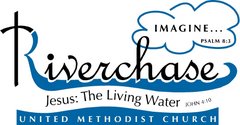On some days and at some places in our journey, the demands of life seem overwhelming. We cannot be or know or do or give what seems to be expected of us. The source of demand does not seem to take into consideration our limited resources of energy, knowledge, or money. And, unless we get some relief by a lessening of expectation or a rearrangement of our own priorities, we may withdraw, give up or break down. More often than not, the problem lies more in our perception than in the essential reality of things.
During a national census, a census-taker knocked on the door of a cabin in the remote hills of Tennessee. An old woman with a quizzical look on her face and an oversized dip of snuff in her mouth came to the door. The young census-taker proceeded to explain why he was there. "Every ten years the government tries to find out how many people there are in the United States", he said. After staring at the ground for a moment, trying to take in what had been said, the old lady said to the young census-taker: "Lordy, honey, I shore do wish I could hep ye, but I don't have no idee how many they is".
Life does not always expect of us what we think it expects. The people who are dependent on us do not always expect of us as much as we assume they expect. The problem of feeling overwhelmed lies more often in our own perspective.
We do not know how to work the new math our children bring home from school and often we cannot offer specific answers to their deep and searching questions about life. Sometimes we feel guilty, or at least inadequate, when we do not know or cannot do what is asked of us. Our role is not to do everything, but to do everything we can. Like the lady in the hills of Tennessee, we cannot count all the people in the United States, but we can account for ourselves.
The people who lived best before us were not people who knew all of the answers; they were people who could survive creatively with unanswered questions. Carl Jung once wrote: "The greatest and most important problems of life are all fundamentally insoluble. They can never be solved but only outgrown". The most important tool we have for negotiating the things in life that are too large to understand is faith. Faith is not so much a solution as it is a coping mechanism. It is a device for withstanding more than for understanding.
The encouraging word for today is that you do not have to know or to do everything in order to be an adequate human being.


No comments:
Post a Comment